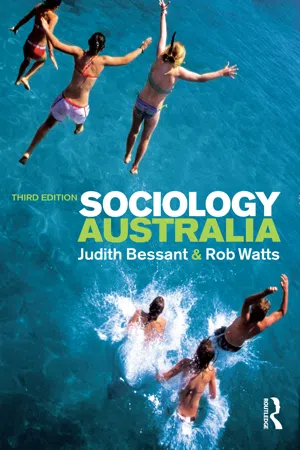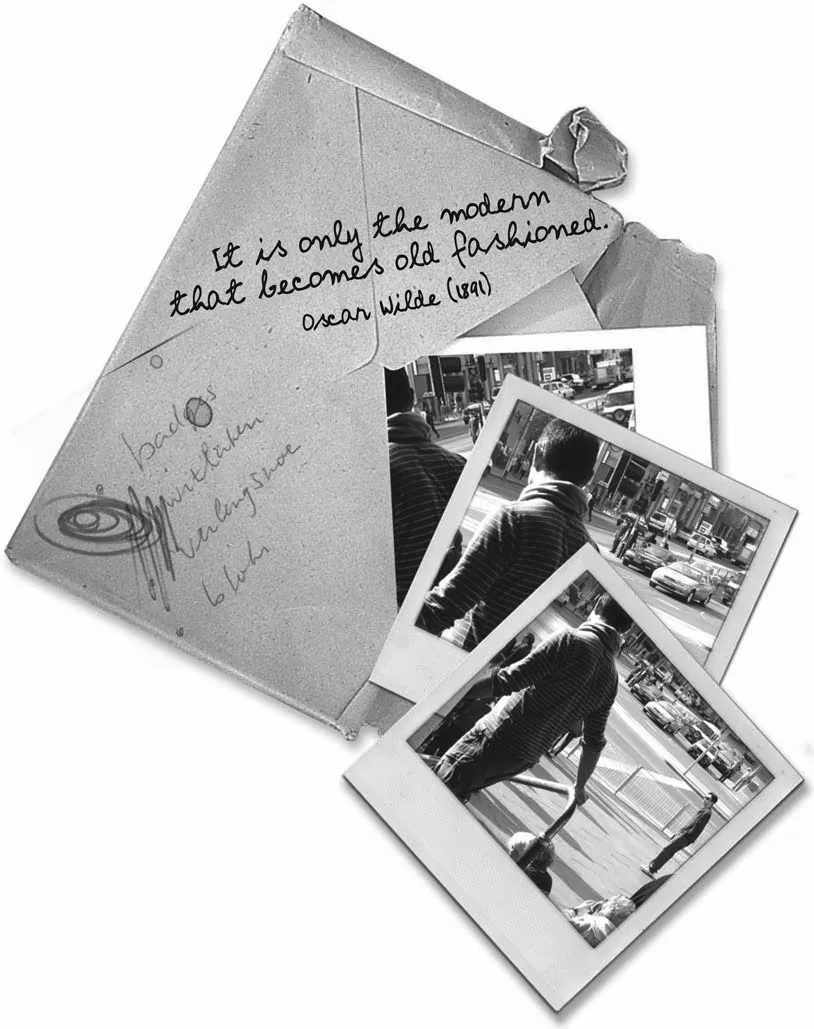
- 552 pages
- English
- ePUB (mobile friendly)
- Available on iOS & Android
Sociology Australia
About this book
Sociology gives us the tools we need to understand our life and the lives of the people around us. It reveals that our commonsense view of the world isn't always right, and enables us to find out what actually shapes our experiences.
In this widely used and very readable introductory text, Judith Bessant and Rob Watts show us how to develop a sociological perspective on what is happening in Australia today. Rapid and far-reaching social changes are taking place which affect us all: globalisation is impacting on our economy and culture; technological developments increase the pace of life; and many people worry about the decline of traditional values and about environmental and personal security. Using a sociological perspective we can explain why different groups of people experience these changes as exciting, unsettling or devastating.
Sociology Australia is structured around six key questions:
* What is sociology?
* Who are we and how do we come to be who we are?
* How do we know the world in which we live?
* Can we make our lives as we want them?
* Who makes the decisions that shape our society?
* What changes are taking place in Australia today?
Sociology Australia is an ideal introduction to the discipline of sociology and to the dynamics of Australian society today. This third edition of Sociology Australia has been substantially revised and updated, and includes new chapters on religion, education and sustainability.
Frequently asked questions
- Essential is ideal for learners and professionals who enjoy exploring a wide range of subjects. Access the Essential Library with 800,000+ trusted titles and best-sellers across business, personal growth, and the humanities. Includes unlimited reading time and Standard Read Aloud voice.
- Complete: Perfect for advanced learners and researchers needing full, unrestricted access. Unlock 1.4M+ books across hundreds of subjects, including academic and specialized titles. The Complete Plan also includes advanced features like Premium Read Aloud and Research Assistant.
Please note we cannot support devices running on iOS 13 and Android 7 or earlier. Learn more about using the app.
Information
• • • PART ONE
WHAT IS SOCIOLOGY?
1.
SOCIOLOGY IN AN AGE OF INSECURITY

• • SUMMARY
• SOCIOLOGY IN AN AGE OF INSECURITY
• FROM PRE-MODERN TO MODERN SOCIETY: THE BIG PICTURE
Traditional lifestyles
Table of contents
- Cover
- Title Page
- Copyright Page
- Contents
- Acknowledgments
- Introduction
- Part One: What is Sociology?
- Part Two: Identity: Being Yourself, Being Australian
- Part Three: Globalisation, Australia and Social Change
- Glossary
- References
- Index